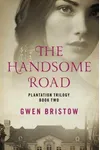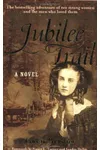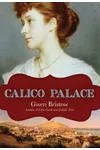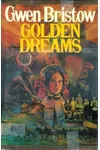Picture a Southern storyteller who spun tales of romance, adventure, and history with the charm of a Louisiana sunset—meet Gwen Bristow! Born in 1903 in South Carolina, this trailblazing author and journalist captured readers’ hearts with her vivid historical novels, like the beloved Louisiana Plantation Trilogy and the bestselling Jubilee Trail. With a knack for weaving meticulously researched details into gripping narratives, Bristow brought America’s past to life, earning her a lasting spot among great historical fiction writers.
From her early days as a reporter to her Hollywood adventures, Bristow’s life was as colorful as her stories. Her work, infused with strong characters and a deep love for the American South, continues to enchant readers decades after her passing in 1980.
The Making of Gwen Bristow
Gwen Bristow was born on September 16, 1903, in Marion, South Carolina, to a Baptist minister and a homemaker. Her love for writing sparked early, reporting junior high events for her local newspaper. After a year at Anderson Baptist College, she transferred to Judson College in Alabama, chafing at its strict rules but honing her creative skills through theater. Bristow’s ambition led her to Columbia University’s Pulitzer School of Journalism, where she supported herself with odd jobs like typing theses and writing essays for others. A summer gig at The Times-Picayune in New Orleans turned permanent, immersing her in the vibrant South and covering events like the 1927 flood and Huey Long’s assassination.
It was in New Orleans that Bristow met journalist Bruce Manning while covering a murder trial. Their romance led to an elopement in 1929, blending her Baptist roots with his Catholic faith. Together, they penned mystery novels, including The Invisible Host (1930), before moving to Hollywood, where Bristow’s literary career soared.
Gwen Bristow’s Unforgettable Stories
Bristow’s historical novels are her crowning achievement, blending romance, adventure, and rich historical detail. Her Louisiana Plantation Trilogy—Deep Summer (1937), The Handsome Road (1938), and This Side of Glory (1940)—traces two families across generations, from the American Revolution to the early 20th century. Deep Summer follows Puritan Judith Sheramy and rogue Philip Larne as they carve out a life in Louisiana’s wilderness. The Handsome Road explores the Civil War’s impact through plantation mistress Ann Sheramy Larne and seamstress Corrie May Upjohn, while This Side of Glory tackles modern love and debt on a fading plantation.
Her 1950 bestseller Jubilee Trail took readers on a thrilling journey along the Santa Fe Trail, following Garnet Hale’s westward adventure. Bristow’s seven-year labor on this novel paid off, landing it on bestseller lists and inspiring a 1954 film. Later works like Celia Garth (1959), set during the Revolutionary War, and Calico Palace (1970), about the California Gold Rush, showcased her versatility. Critics praised Bristow’s “solid and versatile talent” and her ability to unfold American history through vivid characters and settings.
Bristow’s style leaned on meticulous research, ensuring historical accuracy, while her narratives pulsed with emotional sincerity and dramatic flair. Though some called her work sentimental, her fans cherished the realistic portrayal of strong women navigating love and hardship in turbulent times.
Why Gwen Bristow Matters
Gwen Bristow’s novels didn’t just entertain—they illuminated the American South’s complex history, from its colonial roots to its post-Civil War struggles. Her stories, translated into multiple languages, resonated globally, with sales reaching nearly three million copies by the late 1950s. As a woman succeeding in journalism and fiction during a male-dominated era, Bristow inspired aspiring writers, earning a posthumous induction into the Alabama Women’s Hall of Fame in 1989.
Her legacy endures in readers who still devour her tales of resilient heroines and sweeping history. Bristow’s ability to blend romance with gritty realism keeps her work timeless, inviting new generations to explore America’s past through her lens.
- Born: September 16, 1903, Marion, South Carolina
- Key Works: Louisiana Plantation Trilogy, Jubilee Trail, Celia Garth, Calico Palace
- Awards: Posthumously inducted into the Alabama Women’s Hall of Fame (1989)
- Died: August 17, 1980
Ready to travel back in time? Snag Jubilee Trail or the Plantation Trilogy and dive into Gwen Bristow’s captivating world of historical romance!









